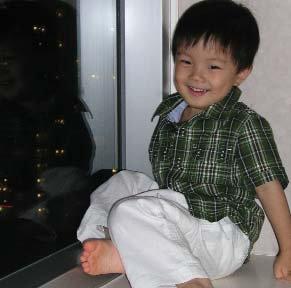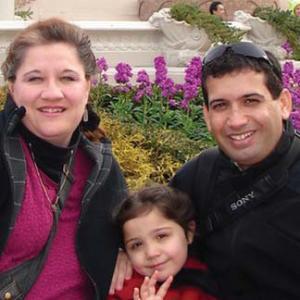Is There a Doctor in the House?
By Anna Kitanaka
Emergency rejection
“Despite the pleas of my husband and myself who told both the admissions people and the nurse that I would die if they did not admit me, we were denied"
Edlyn Niimi, a US citizen who moved to Japan in February last year, told us of an emergency encounter she had with the healthcare system in Japan. She was in need of emergency care after an infection turned septic following complications from surgery. After arriving at a Tokyo hospital, she was immediately denied assistance: “Despite the pleas of my husband and myself who told both the admissions people and the nurse that I would die if they did not admit me, we were denied admittance. We were told to call another hospital. As we did not have cell phones at that time and did not speak Japanese, my husband struggled to call several hospitals from the hospital pay phone. Six hospitals said no. My husband asked for help at the admissions department several times but all they would do is give him another phone number to call.”

Edlyn is not alone—there have been many cases of patients being denied emergency care. In Japan, prior appointments are preferred and failure to do so can result in having to visit other hospitals in search of a spare bed. “We called about five hospitals from our apartment including the ‘foreign friendly hospitals’ but were told they were busy, or they wouldn’t take me without an appointment, or they didn’t speak English. Finally, as I was very sick we decided to go to a well–known hospital since I had taken my daughter there previously. At the hospital they could see I was very sick and told me to wait. A nurse then came out and said the doctor was busy and they couldn’t see me and I had to go someplace else. I started crying and told her if they sent me home I would die. She said there was nothing she could do. My husband then called a number of hospitals from the emergency room pay phone and was again given a variety of explanations; ‘no English,’ ‘no emergency room,’ ‘no you cannot come.’ ” Edlyn believes that “basically it is the luck of the draw as far as being accepted by an emergency department…If I had been having a heart attack instead of septic shock I would be dead now and I just pray that my family won’t experience another emergency since I don’t think emergency care as I know it is available in Japan.”
Helping Japan’s population grow
Patricia Tan, a Singaporean woman married to a Japanese national, had the unusual experience of being a foreigner going through the IVF system in Japan to try for a baby. The first place she went to was a clinic in Roppongi that was full of other foreigners with a famous gynecologist as her doctor. However, her first encounter with a busy doctor who was somewhat icy. He would hardly talk to her unless asked a question—very different from what she was used to back home. At the time, she knew nothing about pregnancy and upon hearing from a friend that an MRI would be a good test to do before she started on IVF, Patricia suggested the doctor do one. The doctor agreed and unfortunately, found a small growth in one of her fallopian tubes. The doctor suggested taking some herbal medicines and told Patricia that they would monitor the growth. This continued for a while until Patricia finally decided to take action and took a trip back to Singapore where her doctor told her she would need emergency surgery as a cyst was growing in her fallopian tubes, resulting in both her tubes being damaged. “I was scheduled to see the IVF division to further discuss my chance of having a baby. It was the worst nightmare I ever had! I personally think, the one year I spent believing in that doctor from Roppongi didn’t benefit me at all! In fact, I wasted my time and could have saved my tubes.”
 Successful IVF: Patrcia Tan’s little boy
Successful IVF: Patrcia Tan’s little boy
Nevertheless, Patricia decided to carry on with IVF in Japan and fortunately, she fell pregnant on her first try. However, during the second month of her pregnancy, another complication arose: “I suffered from a urinary infection and it happened in the morning at around 3–4am. My husband called the gynecological hospital near our home and asked for help. They turned us away and told us to seek help from another hospital. Out of desperation, my husband called the ambulance and asked them for hospital numbers. We called a few and all of them turned us down. After all this waiting and dialing, my husband had no choice but to call that nearby gynecological hospital again and pleaded with them to take a look at me.” Fortunately, a hospital agreed to see her: “I was in such great pain that I just squat on the hospital floor. Thinking that someone will help me up and bring me to the examination room, I was shocked that the first thing they asked for was our insurance card! After they checked and registered me, I was brought to the examination room and the doctor treated my problem. My husband was very worried and asked the doctor what the cause was and why such a thing happened. The doctor just brushed us off by saying, “I have no comments, please ask your doctor”. The doctor said nothing more and left the room. I was shocked by the cold treatment—aren’t doctors and nurses supposed to be friendly and caring?”
Patricia is one of many cases. The Japanese media have been reporting on numerous incidents when pregnant Japanese women were denied care and in 2006, Kyodo News reported 667 women were rejected from the emergency room in hospitals.
Misdiagnosis
Some differences foreigners may stumble upon when moving to Japan are changes in methods of treatment compared to their home country.
Diane Olson moved to Japan with her family and after a few severely itchy months, went to the doctor who diagnosed them with dry skin from the winter weather and offered some itch relief cream. After two months, the family went to a dermatologist who diagnosed them with eczema. A month later, they were finally given the correct diagnosis of scabies.  Diane Olson with her family After yet again being given itch relief cream and annoyed at the doctor treating the symptoms but not the problem itself, Jill took care of the problem by going online and finding a solution: “I told our doctor all about this cream, and printed out the info on the web. She said she would give me something like that and ‘it will rid our bodies of scabies.’ ” However, not given the cream she wanted and frustrated by how long this problem was taking to be resolved, her husband flew back to the US where the doctor there gave him the cream they were after. “Within 6 days, all symptoms were gone…I was very frustrated as we had spent every other Monday at the clinic for 2–3 hours each time (waiting mainly). We all have scars today because we scratched our bodies so much and did that to ourselves. Our daughter’s immune system got weaker and now she has allergies and asthma.”
Diane Olson with her family After yet again being given itch relief cream and annoyed at the doctor treating the symptoms but not the problem itself, Jill took care of the problem by going online and finding a solution: “I told our doctor all about this cream, and printed out the info on the web. She said she would give me something like that and ‘it will rid our bodies of scabies.’ ” However, not given the cream she wanted and frustrated by how long this problem was taking to be resolved, her husband flew back to the US where the doctor there gave him the cream they were after. “Within 6 days, all symptoms were gone…I was very frustrated as we had spent every other Monday at the clinic for 2–3 hours each time (waiting mainly). We all have scars today because we scratched our bodies so much and did that to ourselves. Our daughter’s immune system got weaker and now she has allergies and asthma.”
Other cases of misdiagnosis include a British man being treated for gout in Japan until he returned home and was told by his local practitioner that it wasn’t gout but just a slightly high level of uric acid in his body that the Japanese doctors were not used to seeing.
To say that misdiagnosis is a problem which pertains just to Japan would be a mistake. However, unlike other developed countries, doctors are able to call themselves “specialists” without being board-certified and continuing medical education is not mandatory to maintain an active medical license.
Lost in translation
For most foreigners, the language barrier is the biggest problem they encounter when dealing with the health service in Japan.

Jill Grooms, a registered nurse in the US, developed a life-threatening illness called ‘Lupus Nephritis’ within a few weeks of moving to Japan. Fortunately, she was able to recognize the severity of her situation quickly but not speaking Japanese, found she could not communicate with her local doctors who “didn’t know what to do with me.” When she did manage to find an English speaking doctor, due to the different protocol of dealing with her illness in Japan compared to the US, he advised her to fly back to the States to find a specialist there. Fortunately, she has now recovered and has found medics who were both trained and had practiced in the US, making it easier for Jill now that she is back in Japan. However, she still finds difficulty dealing with “foreigner friendly” hospitals due to the language barrier: “I have found specialists at a Tokyo hospital who seem to know what they are doing and all speak English, but the hospital staff does not speak English and it is challenging to go there.”
Japan is unable to compete as a medical destination for foreigners
John Wocher, Executive Vice President at English-speaking Kameda Medical Center in Chiba, near Tokyo, believes that the number one problem facing foreigners moving to this country is adequate communication with the provider staff: “For outpatient appointments, language can be intimidating unless one has an adequately English-speaking physician, or someone to accompany the foreigner to ensure communication is adequate. For inpatients, 24-hour-a-day communication in English is usually not possible, even when the attending physician speaks English. Nursing staff and paramedical staff usually have limited English skills and medical records, of course, are in Japanese.” Patient confidence is much enhanced through ample communication and in this sense, Japan is unable to compete as a medical destination for foreigners, unlike hospitals in Thailand and India where medical tourism is booming and doctors are often trained in the UK, US or Australia.
The cost of care
Returning to the foreigner’s home country is very expensive and often inconvenient, when many treatments here are of the equivalent quality and often cheaper
But Japanese medical services are not without their redeeming features. John Wocher believes that there are many positive aspects to healthcare in Japan and that many people have the unreasonable expectation that healthcare in Japan will be the same as what they are used to in their home country. One such positive aspect is the price of medical care. “With national health insurance, co-payment amounts are generally very reasonable for routine, non-urgent outpatient care. Returning to the foreigner’s home country is very expensive and often inconvenient, when many treatments here are of the equivalent quality and often cheaper.” Jill agrees: “I find the cost much cheaper than the US. I have had an MRI here that is only around US$500. It would be three or four times that amount in the States since this cost included radiologist interpretation.”

Visiting the hospital is never a pleasant experience and all agree that it is frightening to visit the hospital no matter where you are but especially so in a foreign country. With a growing foreign population in Japan and many hospitals facing financial problems, can Japan take advantage of this situation by building its reputation to be a world class healthcare destination and encouraging a more ‘foreigner-friendly’ system? John believes not: “Japan’s healthcare system is predicted to remain a domestic endeavor, providing an acceptable level of quality at a low cost to Japanese citizens and hospitals in Japan will continue to suffer from severe financial difficulties.”






Comments
Jim Austin (not verified)
February 10, 2008 - 18:56
Permalink
Japan licensed foreign physician
If you ever have occasion to need medical attention while in Fukuoka or Kyushu, I suggest seeing Dr. Ronald Schlemper. He is the only European trained internal medicine physician who holds a Japanese medical license (since 1998) in Kyushu. The regional foreign community likes the fact that the staff at his clinic speak English and Dr. Schlemper is able to consult with his patients fluently in English, Japanese, German, French, Dutch or Chinese. His International Clinic Tojinmachi is only a few minutes by bus, taxi or subway from downtown Fukuoka.
http://www.internationalclinic.org